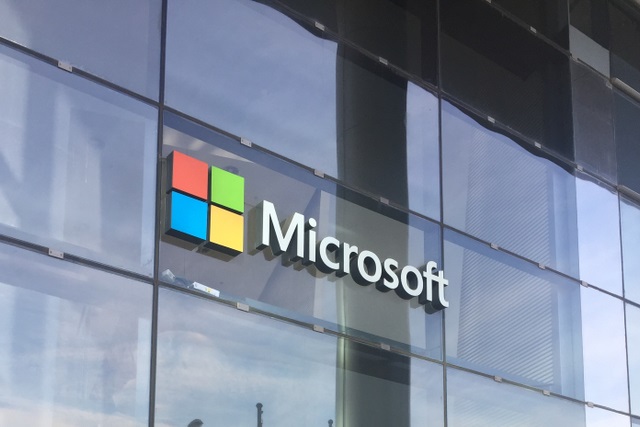
Five vendors account for nearly a quarter of all vulnerabilities
Just five major vendors account for 24.1 percent of disclosed vulnerabilities in 2019 so far, according to a new report from Risk Based Security.
The report also reveals that 54 percent of 2019 vulnerabilities are web-related, 34 percent have public exploits, 53 percent can be exploited remotely and that 34 percent of 2019 vulnerabilities don't yet have a documented solution.

Microsoft and others join the Linux Foundation's Confidential Computing Consortium
Microsoft, Google, Red Hat, IBM and Intel are among those to join the newly formed Confidential Computing Consortium (CCC). The new organization will be hosted at the Linux Foundation, having been established to help define and accelerate the adoption of confidential computing.
The company explains that, "confidential computing technologies offer the opportunity for organizations to collaborate on their data sets without giving access to that data, to gain shared insights and to innovate for the common good". Microsoft will be contributing the Open Enclave SDK that allows developers to build Trusted Execution Environment (TEE) applications using a single enclaving abstraction.

Beta bug hunters can bag up to $30k in the Microsoft Edge Insider Bounty program
With a new beta of the Chromium-based version of Edge now available, Microsoft has unveiled details of a new bug bounty program for the browser.
Through the Microsoft Edge Insider Bounty it is possible to earn a maximum payout of $30,000 for discovering vulnerabilities in the Dev and Beta builds of Edge. Microsoft says that it intends to complement the Chrome Vulnerability Reward Program, meaning that any report that affects the latest version of Microsoft Edge but not Chrome will be eligible.

Hacktivism in decline as it returns to its roots
Hacktivism has its origins in small groups of people banding together to achieve common goals. In recent years, however, it's become associated with larger groups and even nation states using the guise of hacktivism for geopolitical purposes.
A new report from the Insikt Group at Recorded Future though suggests that overall hacktivism is in decline.

What makes enterprises more efficient at patching vulnerabilities?
The companies most effectively managing security vulnerabilities are those using a patch tool, relying on risk-based prioritization tools, and having multiple, specialized remediation teams that focus on specific sectors of a technology stack.
A new report from cyber risk specialist Kenna Security, produced in conjunction with the Cyentia Institute, reveals that businesses with mature, well-funded vulnerability management programs are more likely to patch vulnerabilities faster.

Now you can jailbreak iOS 12.4 -- or hack it
Hackers have taken advantage of a vulnerability in iOS 12.4 to release a jailbreaking tool. This is the first time in many years that it has been possible to jailbreak iPhones running the most recent version of iOS.
Security researchers discovered that in iOS 12.4, Apple has unpatched a vulnerability it previously fixed and it didn't take long for hacker Pwn20wnd to release a free jailbreak tool.

Almost a third of healthcare workers haven't had cybersecurity training
Because of the volumes and types of data that it holds the healthcare industry is a prime target for cybercriminals.
So it's a little concerning that a new survey of healthcare staff from Kaspersky shows 32 percent of respondents in North America say that they have never received cybersecurity training from their workplace.

Thycotic launches automated solution for managing service accounts
Service accounts are specialized non-human accounts used by applications or other services to access data and network resources to perform specific tasks.
Because they tend to be set and then forgotten they often slip under the radar of conventional account management processes. Privileged access management specialist Thycotic is launching a new Account Lifecycle Manager to automate the management of these accounts.

Privacy: Apple now treats WebKit tracking circumvention as a security issue
Apple has updated its WebKit policy, increasing the company's focus on privacy. The new WebKit Tracking Prevention Policy now states that any circumvention of its anti-tracking feature is treated in the same way, and as seriously, as security issues.
The aim is to prevent web tracking completely because "these practices are harmful to users because they infringe on a user's privacy without giving users the ability to identify, understand, consent to, or control them". Apple says it wants "to see a healthy web ecosystem, with privacy by design".

Deception technology speeds up detection of attacks
Users of deception technology report a 12X improvement in the average number of days it takes to detect attackers operating within an enterprise network.
New research for Attivo Networks carried out by Enterprise Management Associates suggests attacker dwell times can be as low as 5.5 days with deception in use compared to an average of 78 to 100 days for those not using the technology.

Over 3,800 data breaches reported in the first half of 2019
2019 is on track to be another 'worst on record' year for data breaches according to a new report from Risk Based Security which finds the number of reported breaches has gone up by 54 percent and the number of exposed records by 52 percent compared to the first six months of 2018.
It shows 3,813 breaches have been reported in the first six months of 2019, exposing more than 4.1 billion records. Eight breaches alone have exposed over 3.2 billion records, 78.6 percent of the total, between them.

C-Suite in the hot seat -- Execs' responsibility regarding digital security
Are you killing your numbers? Crushing your targets? Growing your team? Leading with authenticity and building a loyal following? What a shame it is that your tenure may already be over.
While you were busy winning and shredding the competition, a cybercriminal breached your network. Don’t be too embarrassed, it happens to almost everyone these days. The average "dwell time" of an intruder is more than 100 days, so it’s hard to know exactly when that bucket of ice water was tossed on your dreams. Unfortunately, even if you’re doing everything right, recent examples illustrate that our jobs are on the line when hackers come a knockin’.

Norman the Cryptominer uses sophisticated techniques to avoid discovery
Researchers at Varonis have released information on a new cryptominer variant, which the team has dubbed 'Norman', that uses various techniques to hide and avoid discovery.
Norman was discovered during investigations of an ongoing cryptomining infection that had spread to nearly every device at a midsize company.

Education is top target for cyberattacks
The education sector has become one of the most sought after targets for cybercriminals, according to the latest report from Malwarebytes Labs.
In the first half of 2019, the top three largest categories of threats identified among education institutions' devices are adware (43 percent), Trojans (25 percent) and backdoors (three percent). However, ransomware dropped to less than one percent in this period -- though it was higher both before and after the study.

Personal data breaches and securing IoT devices
The Internet of Things (IoT) is taking the world by storm as interconnected devices fill workplaces and homes across the US. While the intention of these devices is always to make our lives easier, their ability to connect to the internet turns them into ticking time bombs, lying in wait until their weaknesses can be exploited by opportunistic hackers.
Personal data breaches are skyrocketing in America, increasing by 60% in the last year and by 157 percent since 2015. As our interconnectivity grows, so do the opportunities that our technology will be hacked. Since every IoT device is connected to the internet, each one is vulnerable to external access if not secured properly. In the rush to manufacture these devices and get them onto the market, security has been an afterthought which needs to be urgently addressed if the number of yearly data breaches is to be tackled.
